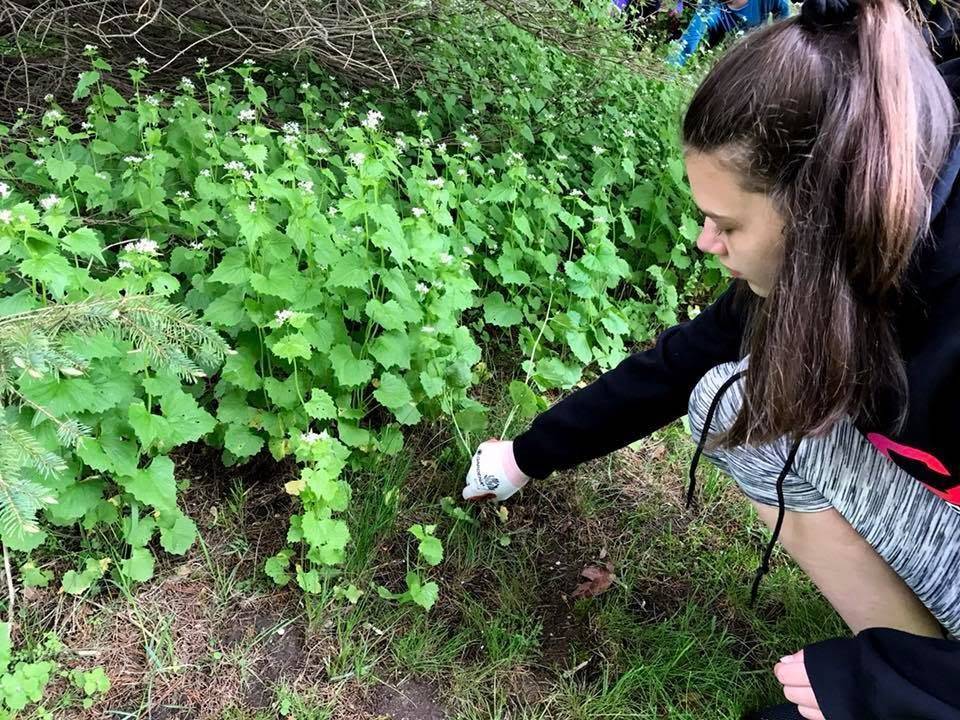Invasive Plants Removal

Would an invasive species removal project benefit your community?
What is it?
There are different management options for invasive plants based on the species and the scale of the invasion. For example, Garlic Mustard is an invasive plant found throughout Michigan that is easy to identify and can help be controlled through spring and early summer removal projects before it seeds. Invasive plant removal projects should be selected and planned based on the specific site conditions.
How much would it cost?
- Gardening gloves $90 (30 pairs at 3 dollars each)
- Garbage Bags for disposing of plants ($15)
- Wheelbarrow or wagon to transport bagged plants ($100)
The cost of the project will depend on the size of the area and the removal options selected.
What long-term maintenance is required?
Invasive plant removal projects require several years of treatment and/or monitoring. For example, Garlic Mustard seeds can remain viable for many years in the soil, so removal campaigns would need to be conducted each year until no seedlings appear.
Who are some potential partners?
-
Kent Conservation Strike Team: The Strike Team offers a variety of services to help control and manage invasive species on property in Kent County.
How could I determine if the project is successful?
-
Count the number of invasive plants that return each year
-
Conduct a species inventory to determine how the species composition has changed
Where can I find more information?
The plant species that are invasive to your environment will depend on your specific location. State and local agencies are a good place to start, as well as extension services at state universities.
Additional resources:
- Garlic Mustard Information: The State of Michigan provides an overview of the invasive plant Garlic Mustard and has information on the best control practices for eliminating the plant.
- Garlic Mustard Management Options: An overview of the different types of management options for Garlic Mustard
- Michigan Cooperative Invasive Species Management Areas: Cooperative Invasive Species Management Areas (CISMAs) are partnerships of groups and individuals that address invasive species impacts on the environment, economy, and human health within a defined region.
